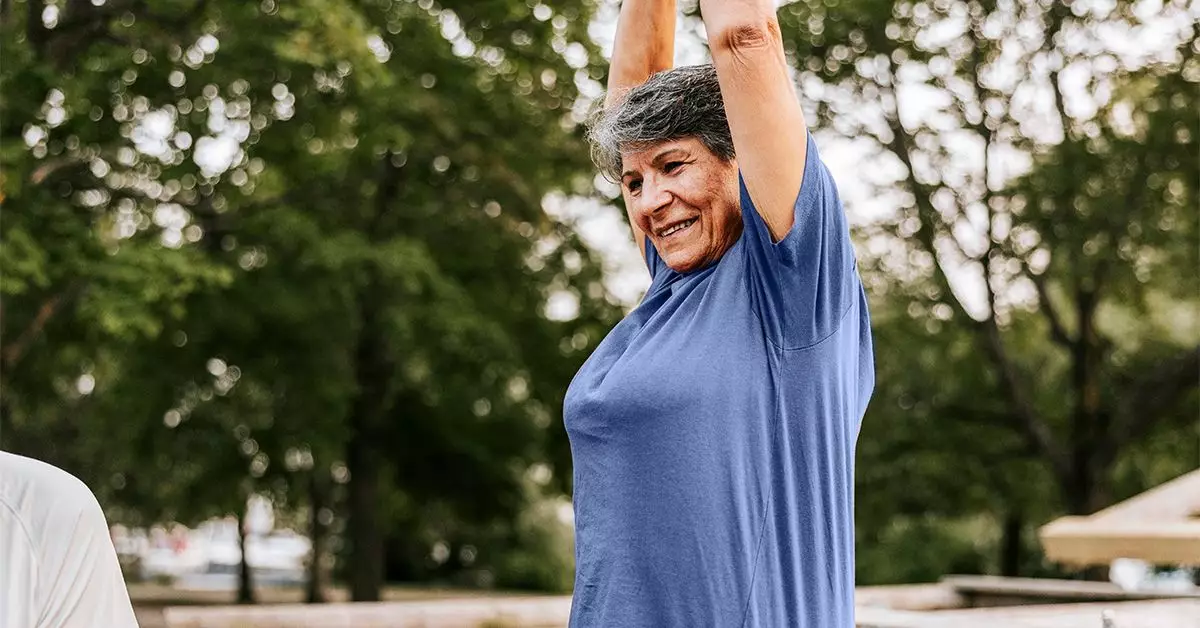Mild cognitive impairment (MCI) serves as a crucial flag in the aging process, often signaling a heightened risk for Alzheimer’s disease and various forms of dementia. Yet, recent findings illuminate a compelling narrative connecting physical activity with cognitive resilience in older adults. Two significant studies show that engaging in low to moderate-high-intensity exercise leads to considerably less cognitive decline over the span of a year compared to sedentary peers. This revelation uncovers the potential not just for maintaining cognitive function, but for improving the overall quality of life among older adults navigating the complexities of MCI.
According to Laura Baker, PhD, a leading expert in gerontology, lifestyle factors—particularly regular physical exercise and healthy eating—play a pivotal role in dictating the trajectory of cognitive decline. While science has yet to unveil a definitive cure for Alzheimer’s, the evidence accumulating around lifestyle interventions showcases a promising strategy to prolong cognitive wellness.
Understanding Mild Cognitive Impairment
Mild cognitive impairment serves as a critical transitional stage between the realm of normal cognitive operation and significant cognitive decline. Characterized by a noticeable but often subtle memory loss, MCI does not incapacitate the individual in daily activities. Everyday tasks such as working, cooking, and running errands can continue with minimal disruption, leading this form of cognitive decline to frequently fly under the radar of both caregivers and healthcare providers.
This “under the radar” nature of MCI often results in individuals missing out on timely interventions that could safeguard cognitive health. Baker asserts that this condition, while not overtly debilitating, requires attention so that strategies to mitigate decline can be employed before dementia takes hold.
Groundbreaking Research on Exercise Intensity
The EXERT study, which Baker spearheaded, meticulously categorized sedentary adults with MCI into different exercise regimens. Participants either engaged in moderate-high-intensity aerobic training or adhered to a regimen of low-intensity exercises focused on flexibility and balance over the course of 12 months. The findings were striking: both exercise groups exhibited a stabilization in cognitive function compared to their sedentary counterparts.
What’s even more compelling is that the individuals in both groups reported a reduction in brain volume loss, essential for cognitive sustainability, particularly in the prefrontal cortex. Dr. Aladdin Shadyab, who contributed to the research, highlights the significance of cognitive functions supported by this brain region—skills such as planning, attention, and multitasking. Thus, incorporating regular physical activity into one’s routine can play a role in mitigating age-related cognitive decline.
Rethinking Exercise: A Spectrum of Intensity
Traditionally, high-intensity exercise might have been perceived as the gold standard for cognitive preservation. However, recent studies challenge this notion, suggesting that any form of regular activity—whether low or moderate-high in intensity—can yield substantial benefits. Baker argues that this democratizes exercise, making it more accessible for older adults who may hesitate to engage in vigorous workouts.
The studies reveal that just 30 to 45 minutes of exercise, performed three to four times a week, can be profoundly impactful. This accessibility is key, as it opens the doors for older adults to adopt a regular exercise habit without feeling intimidated by the prospect of high-intensity workouts.
The Broader Implications for Brain Health
As emphasized by Lycia Neumann, PhD, of the Alzheimer’s Association, a holistic understanding of brain health should incorporate lifestyle choices. Improving dietary habits, staying socially active, and regular exercise can collectively fortify against cognitive decline—even among those with genetic predispositions.
In an aging population, adapting these lifestyle interventions can profoundly alter public health outcomes. The message is clear: encouraging older adults to engage actively in physical, dietary, and social practices can serve as a bulwark against cognitive decline. This holistic approach emphasizes the old adage, “What’s good for the heart is good for the brain,” underlining the interconnectedness of physical and cognitive health.
Practical Strategies for Maintaining Cognitive Vitality
To create a sustainable exercise plan that enhances brain health, neurologist Clifford Segil, DO, recommends incorporating simple daily activities into one’s routine. Taking brief walks and engaging in structured learning not only bolsters physical health but also stimulates cognitive functions essential for memory retention. His insights suggest that the act of moving—whether through walking or attending educational classes—has far-reaching implications for cognitive preservation.
As research continues to evolve, the call to action is clear: integrating regular exercise into daily life can significantly bolster the chances of maintaining cognitive health. Through understanding MCI, acknowledging the effects of physical activity, and adopting holistic lifestyle interventions, individuals can cultivate a future where aging does not equate to cognitive decline but rather to a sustained quality of life.

